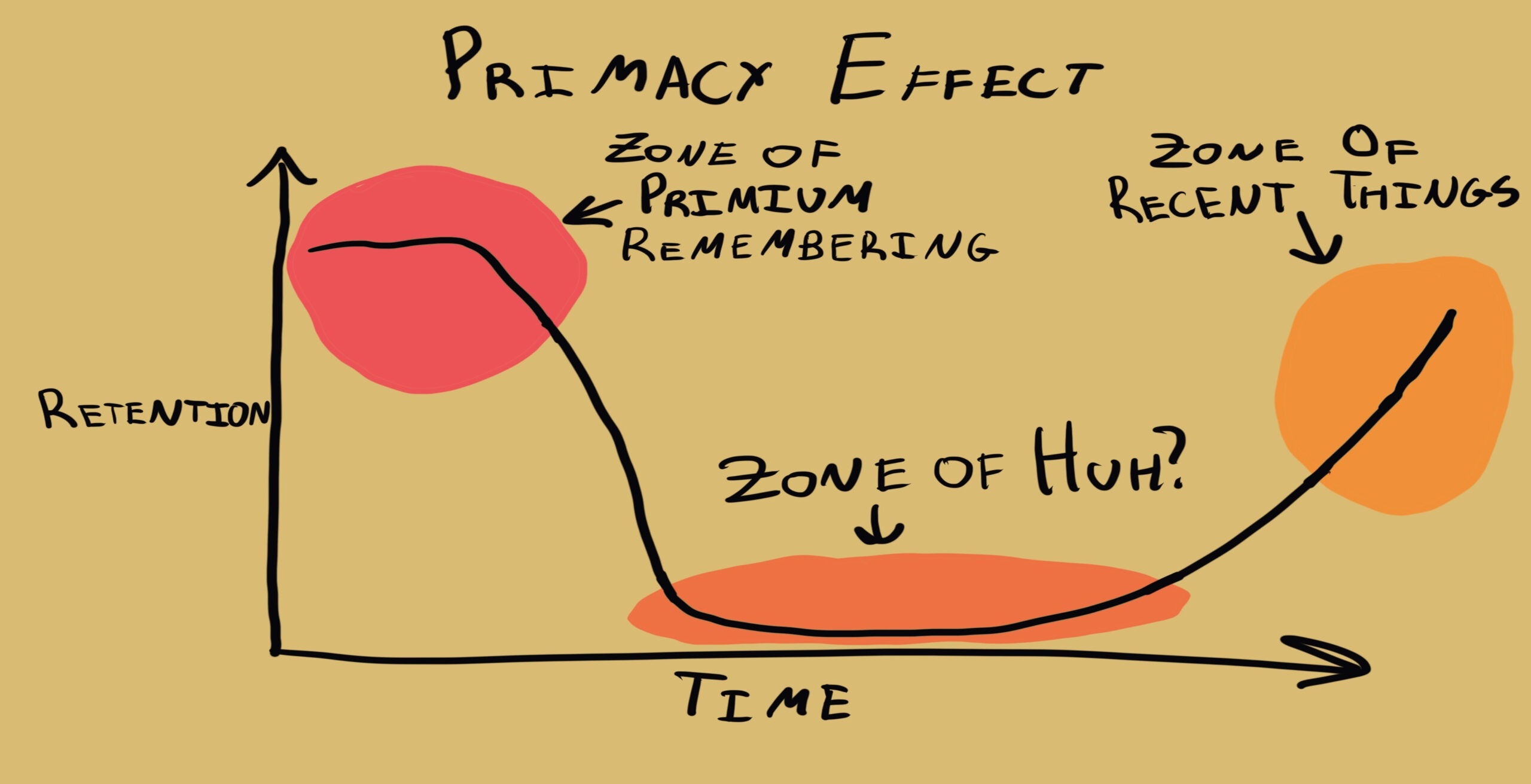The primacy effect is a cognitive bias that occurs when individuals have a better memory and recall of items or events that occurred at the beginning of a sequence or list compared to those that occurred later. It often leads people to assign more significance to the initial information and overlook later information.
Explanations:
The primacy effect is connected to the way memory works, particularly in the context of serial position. Information presented at the beginning of a sequence is often stored more effectively in long-term memory because it has time to be consolidated.
Examples:
Oral Presentations: An audience may remember and emphasize the first points made by a speaker while forgetting or undervaluing later points.
Job Interviews: A candidate’s initial introduction and first impressions may leave a lasting impact on interviewers, influencing their overall assessment.
Educational Settings: Students might better recall and understand the material covered in the first few class sessions of a course while retaining less information from later sessions.
Solutions:
Structured Communication: When presenting information, structure it to ensure that key points are both at the beginning and end of a sequence to counteract the primacy effect.
Review and Reflection: Encourage the practice of reviewing and reflecting on the entirety of information presented or experienced rather than solely focusing on initial impressions.
Critical Evaluation: Be aware of the primacy effect’s influence and consciously consider the importance of both early and later information in decision-making.
Decision-Making Frameworks: Implement decision-making frameworks that consider all relevant information from start to finish.
Addressing the primacy effect involves recognizing the natural tendency to prioritize information presented at the beginning of a sequence and working to evaluate all information comprehensively. By taking a more balanced approach to information processing, individuals can make more informed decisions and reduce the impact of this cognitive bias.
